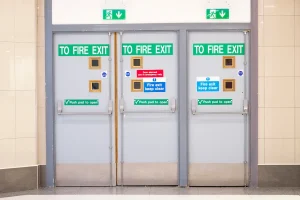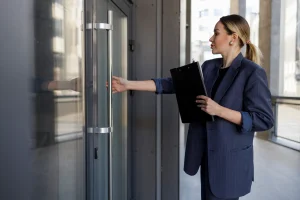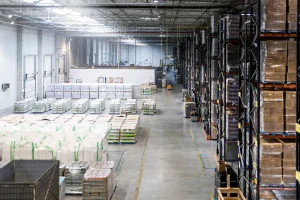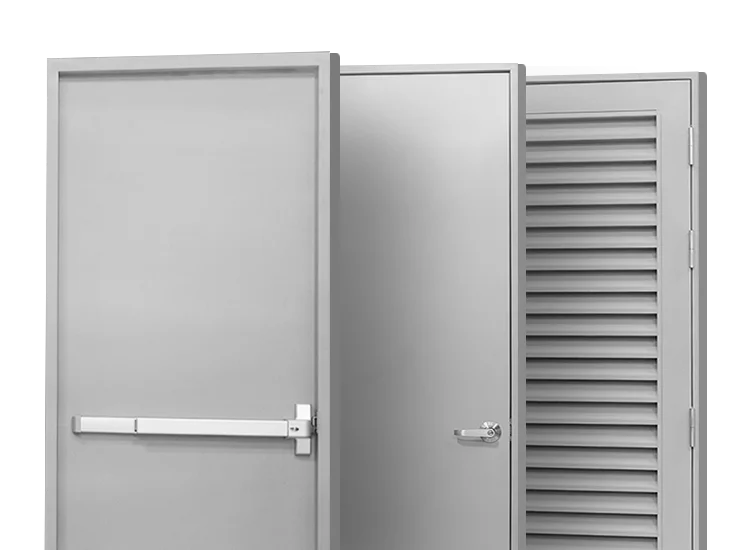Security is no longer just about locking the door and walking away. Today, it involves choosing the right kind of protection that fits your lifestyle, property needs, and long-term goals. With technology reshaping nearly every aspect of building security, door locks have evolved far beyond the standard key and bolt.
That evolution has led many property owners, from homeowners to commercial decision-makers, to ask a common question: Is a smart door lock better than a traditional one? The answer depends on what you’re looking for, whether it’s high-tech convenience, old-school reliability, or a balance of both.
In this blog, we’ll break down the core differences between smart door locks and traditional door locks, explore their pros and cons, and help you decide which one is the smarter investment for your space.
Understanding Smart and Traditional Door Locks
Before weighing the pros and cons or comparing features side by side, it’s important to first understand what defines a smart lock versus a traditional one. While both are designed to do the same thing—secure your door and control access—they go about it in very different ways.
These two types of locks represent two different philosophies in security: one prioritizes mechanical simplicity, while the other leverages digital innovation for added flexibility. By getting familiar with how each system works, you’ll be better equipped to decide which aligns more closely with your security priorities and how you interact with your space on a daily basis.
Traditional Door Locks
Traditional door locks are the kind you’re likely most familiar with: pin tumbler locks, deadbolts, mortice locks, and rim locks. These use physical keys to lock or unlock a door. They’re mechanical, time-tested, and have been in use for centuries.
- Typically require manual locking and unlocking
- No electronic components involved
- Come in various styles and security levels (e.g., single or double cylinder deadbolts)
Smart Door Locks
Smart door locks, on the other hand, are part of the smart home movement. These locks use technology—like Wi-Fi, Bluetooth, or keypads—to control access. Instead of a physical key, you unlock the door using an app, a fingerprint, a code, or even voice commands.
- Allow keyless entry
- Can be controlled remotely
- Often integrate with smart home systems and devices
- May include logs or notifications of entry activity
Whether you’re securing a front door, a warehouse entry, or a commercial access point, understanding the differences between these two systems is the first step in choosing the right one.
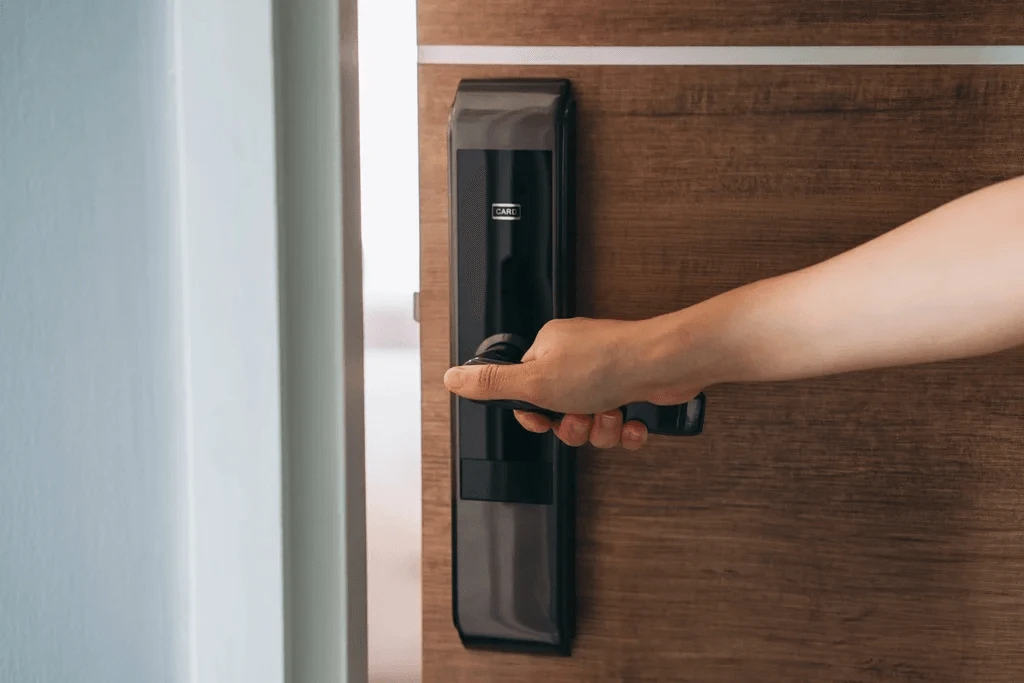
Smart Door Lock vs Traditional Door Lock: What’s the Difference?
While both smart and traditional locks are designed to secure your doors, their differences become clear when you look at how they function in daily life. Below is a breakdown of the key areas where these two lock types diverge, making it easier for you to see which one suits your needs best.
Security
Smart locks offer added layers of protection through features like auto-lock timers, tamper alerts, access logs, and even two-factor authentication. Many models allow you to monitor lock activity remotely, giving you real-time control and visibility.
Traditional locks, meanwhile, rely on the strength of their mechanical components. A well-installed deadbolt or mortice lock provides reliable security, but without the enhanced monitoring capabilities that smart systems offer.
Access Convenience
When it comes to everyday use, smart locks bring undeniable convenience. They allow you to lock or unlock your door using a smartphone app, keypad, or voice assistant, so there’s no need to fumble for physical keys. You may even grant temporary access codes to guests or delivery personnel.
Traditional locks, on the other hand, require you to carry and manage physical keys. While that may be perfectly acceptable for some, it adds an extra layer of effort, especially when sharing access.
Integration with Other Devices
Smart locks are built to work within a larger connected ecosystem. Many integrate seamlessly with smart home systems, security cameras, doorbells, and lighting setups. This makes it easier to automate security routines or monitor multiple entry points at once. Traditional locks function independently, offering no compatibility with digital systems. If integration and automation are important to you, a smart lock is the clear winner.
Installation
Installation complexity varies depending on the type of smart lock. Some are designed to retrofit over existing deadbolts, making them relatively easy to install, while others may require more extensive door modifications. Traditional locks are generally easier to install, especially if your door is already prepped with a standard cylinder or mortice cutout. They don’t require wiring, batteries, or connectivity, which can simplify setup.
Power and Connectivity
Smart locks run on batteries and often depend on Bluetooth or Wi-Fi to function. While most systems include low-battery alerts, power loss can temporarily limit functionality, especially if you rely on app-based access. Traditional locks don’t rely on any external power source, making them immune to outages or connectivity failures. If you prefer something that always works, regardless of tech, traditional locks may feel more dependable.
Maintenance
Smart locks require occasional maintenance such as battery replacement, software updates, or troubleshooting app connectivity. In contrast, traditional locks need little more than lubrication or key replacements over time. From a maintenance standpoint, traditional locks tend to be lower-effort, though they also offer fewer features to maintain.
Cost
Smart locks usually carry a higher upfront cost due to the technology involved, but their added features may offer better long-term value—especially in terms of convenience and remote control. Traditional locks are more affordable and widely available, making them a go-to for quick replacements or cost-conscious upgrades.
At-a-Glance Comparison: Smart Locks vs Traditional Locks
If you’re short on time or just want to quickly review the differences, here’s a side-by-side comparison of smart and traditional locks across key features:
| Feature | Smart Door Locks | Traditional Door Locks |
|---|---|---|
| Security | Advanced features, alerts, auto-lock | Mechanical only, depends on build quality |
| Access Method | Keyless entry via app/code | Physical key required |
| Integration | Compatible with smart home systems | No integration |
| Power Requirement | Battery-operated, needs Wi-Fi/Bluetooth | No power or connectivity needed |
| Installation | Moderate to complex | Simple to install |
| Maintenance | Battery + firmware | Minimal |
| Price | Higher upfront cost | Lower initial cost |
How to Choose Between a Smart Lock and a Traditional Lock?
The decision between a smart lock and a traditional lock depends on your unique circumstances—particularly your property type, how the door is used, and who needs access. Here’s how to think through your options:
1. What Type of Property Are You Securing?
The type of space you’re protecting makes a big difference. Residential homes often benefit from the convenience of smart locks, especially for families managing multiple schedules. Retail stores or small offices may appreciate smart locks for employee access tracking, but traditional locks still offer reliable protection at a lower cost. For industrial or warehouse settings, traditional mortice locks or high-strength deadbolts are often preferred due to their durability and simplicity.
2. Where Will the Lock Be Installed?
The location of the door helps determine what kind of locking system is appropriate. For front doors or main entryways, smart locks shine thanks to their quick-access features and ability to manage multiple users. Back doors or less-used entry points may not require that level of tech, making traditional locks a practical option. Steel or reinforced doors, often used in commercial or industrial buildings, may require locks compatible with thicker materials or high-security hardware.
3. Who Will Be Using the Lock?
Consider the people who’ll be using the door daily. If you’re managing a space that gets frequent visitors, deliveries, or shift changes, smart locks offer the flexibility to assign and revoke access without needing to hand out physical keys. For properties with limited users or less turnover, a traditional keyed lock may be all that’s needed.
4. Do You Need Remote Access or Monitoring?
If you’re someone who travels often or manages multiple properties, a smart lock offers unmatched control. You can lock or unlock doors remotely, monitor who’s coming and going, and receive alerts in real-time. Traditional locks don’t offer this kind of feedback; once the door is locked or unlocked, you’re left guessing.
5. What’s Your Budget?
Smart locks generally cost more upfront, but they come with added convenience and flexibility that may save time and money down the line. Traditional locks are budget-friendly and widely available, which makes them a go-to option for quick replacements or secondary doors.
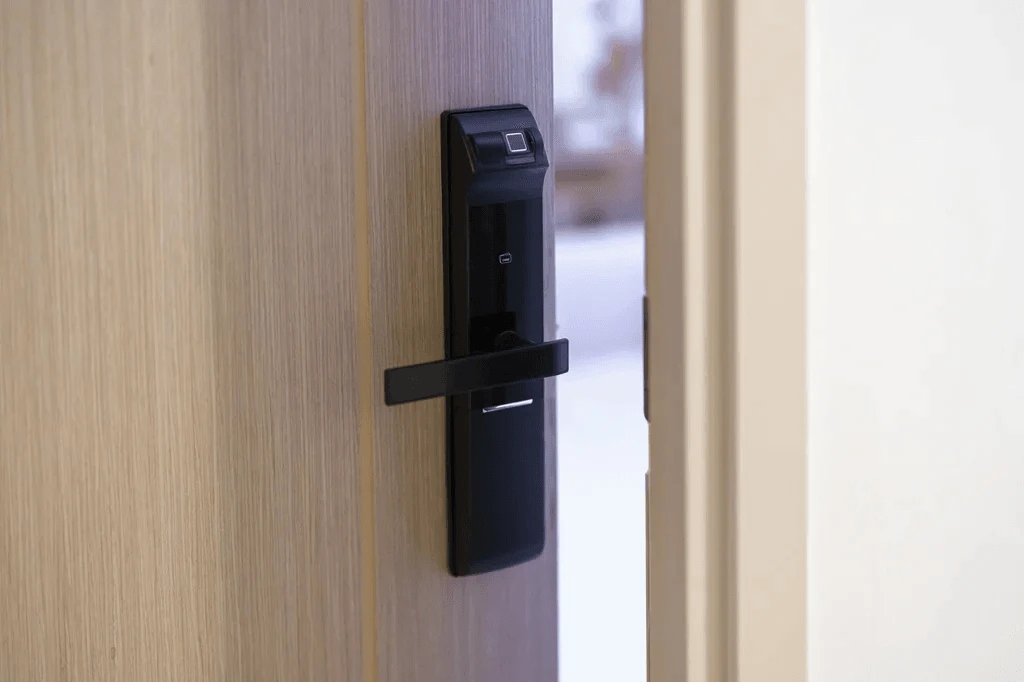
Why Are Smart Door Locks Worth It?
If you value enhanced security and daily convenience, smart locks offer serious advantages especially when installed on high-quality steel doors.
Remote Access and Monitoring
With a smart lock, you’re in control no matter where you are. Lock the door from your phone, or get notified when someone opens it.
User-Friendly Access Management
Let guests in while you’re away. Assign access codes to family or employees. Revoke access instantly when needed, without needing to replace locks.
Seamless Integration with Smart Home Devices
Connect your lock with doorbell cameras, alarm systems, or lighting setups for a fully secure, automated space.
Keyless Convenience
Forget fumbling for keys. Whether it’s a late-night return or a hands-full entry, keyless systems keep things moving smoothly.
Improved Long-Term Value
While smart locks may cost more upfront, their time-saving features and reduced need for key replacements or locksmith calls add up.
Unlock the Power of Smart Technology to Upgrade Your Steel Door
Pairing a smart lock with a durable steel door is one of the most effective ways to protect your property. At Janus Steel, we design our doors with security in mind, and that includes compatibility with today’s most advanced locking systems.
Explore our catalog of steel doors and lock-compatible hardware, whether you’re upgrading a front door, outfitting a warehouse, or securing a commercial property. Smart lock or traditional, the real power lies in what you install it on. So, make your security smarter, stronger, and built to last—with Janus Steel. Contact us today to know more.


